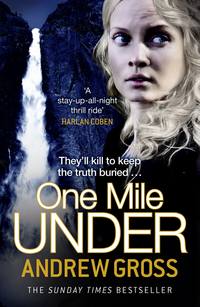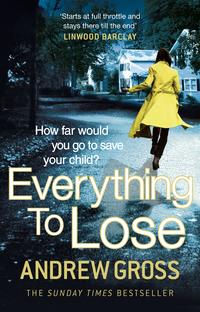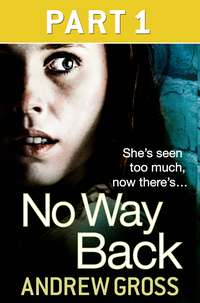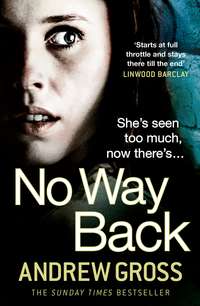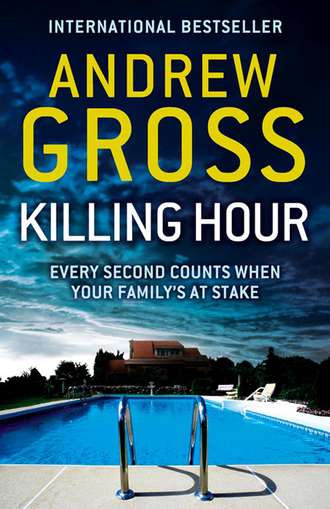
Полная версия
Killing Hour
‘Your brother cannot come to the phone,’ Gabriella said. ‘He’s a mess, Jay. He can’t stop crying. He’s blaming himself for the whole thing. He can’t even speak.’
Blame . . . My brother’s life was a monument to blame. I could think of a million reasons he might be feeling that.
Charlie was my half brother, from my dad’s first marriage. Eight years older than me; I barely knew him growing up. He was raised in Miami, in the sixties, brilliant in many ways – a math whiz, early into quantum physics and Eastern religions – but just as wild. My dad’s marriage to his mother had only lasted a year and a half, then he made his way up to New York; started his business, a women’s apparel firm; and married my mom. He barely even acknowledged he already had a son.
Charlie was smoking pot by the time most kids were hiding beers. Then he went upward from there: speed, mushrooms, LSD. He grew his hair out, totaled his Corvette. A ranked junior in tennis, he flung his racquet into the stands at the state high school championships and never went back. He always had this dream of becoming a big-time rock star. And he even produced a record once, in LA – the only real accomplishment in his life.
Then there were a lot of dark years . . .
First, when he was twenty-three, it was the Hartford House of the Living, where he spent three months after the cops picked him up on the streets raving that he was Jesus Christ.
Then the street scene in New Orleans, with this ragged band of drugged-out bikers and felons known as the STPs – the Stinky Toilet People – who slept on the floors in abandoned buildings whacked out of their minds. Charlie once told me that you could wake up with a knife stuck in your chest if you simply rolled up against one of their girlfriends wrong.
And finally that commune up near Big Sur, where I’d heard about this cult of stoned-out musicians and drifters, several of whom were later convicted for a string of horrible murders, though Charlie always claimed he was only hanging around there for the chicks and the drugs.
For years, he bounced in and out of hospitals and jails. Schizophrenic and bipolar, he’d been on lithium for thirty years, not to mention his own private pharmacy of antipsychotics and mood stabilizers. He always battled with our father, right up to the day he died.
Ultimately, he did settle down. He met Gabriella in a recovery clinic back in Miami. Together, they moved out west and lived this quiet, codependent life in a coastal California town, granted disability by the state, just enough to squeak by.
They had Evan, and they tried their best to raise him. We always pitched in, anteing up for a car when theirs broke down or paying off their debts. Charlie once said to me, ‘You know how ashamed it makes me, Jay, to have to take money from my little brother just to get by.’
But of course they always took it. We were all that kept them from living under a bridge somewhere.
Now Evan . . .
My nephew’s life was a perfect storm of things that had gone wrong. Mental instability. No money. Violence and fighting in the house. At first, everything seemed on the right track; then it all changed. Scrapes at school became brushes with the law. He started taking drugs – speed, ecstasy, OxyContin. He and my brother began to clash – just as Charlie and our father used to clash – furniture tossed, punches thrown, the police called. Evan’s behavior grew increasingly erratic and withdrawn. He started hearing voices. He was placed on a daily diet of the same pills his father took – lithium, Klonopin, Thorazine – but he always seemed to be more off them than on. Finally he dropped out of school, got himself fired from a series of menial jobs. I tried my best to get him private counseling, to lure him away from their house. Once, I even begged him to come live with us and go to a junior college back east. But Charlie and Gabby never seemed prepared to let him go.
Only months ago, they’d told us that Evan had turned around. They’d said he was back on his meds, being helpful around the house. Even thinking of going back to college. Then only last week they’d left a message: He’d been taken away. He was in a state hospital. They were talking about finding him some kind of a halfway facility where they could place him under supervision. Force him to stay on his meds. We thought this was good. For the first time in years, we thought maybe there was a reason to hope.
Now this . . .
‘Your brother needs you, Jay,’ Gabriella said. She choked back a sob. ‘I’m afraid for what he might do. You know we don’t have anywhere else to turn.’
They had no money. No jobs to focus on. No friends to help soften the pain. All they ever had was this kid. And now he was gone.
I gave her over to Kathy, who tried to comfort her, but what was there to say? In a couple of minutes she put down the phone.
‘I have to go out there,’ I said.
She nodded.
I scrolled through my commitments for the following week – mostly things I could pass off on my partners, other than a procedure I had to perform on Friday on the teenage daughter of a friend.
‘I’ll go Monday. I’ll only stay a couple of days.’
Kathy shook her head. ‘You can’t wait until Monday, Jay. These people need you. You’re all they have.’ She took my hand in hers. ‘You have to go tomorrow, Jay.’
My gaze drifted to the meal spread out on the blanket, now cold. The glasses of champagne. Our little celebration. It all seemed pointless now.
I realized I hadn’t seen my brother in more than five years.
‘I’ll go with you, you know,’ Kathy said, moving next to me. ‘I will.’
‘Thanks.’ I smiled and drew her next to me. ‘But this is something I ought to do alone.’
‘You’re a good brother, Jay.’
She handed me my glass. Then she took hers and we touched them lightly together. ‘Here’s to Evan,’ Kathy said.
‘To Evan.’
We took a sip and sat, knees up, watching the waves against the shore. Then she leaned over and re-pressed the play button on the iPod.
‘Like the man says . . .’ She put down her drink. ‘We’ve still got tonight.’
Chapter 4
The three-hour drive up the California coast on 101 to Charlie’s the following day gave my mind time to wander to some old things.
It went to my brother as a long-haired eighteen-year-old who had just dropped out of college, his conversation rocketing back and forth between complex string theory, Timothy Leary, and how the Beatles’ Abbey Road was the new gospel, in what I knew now, but not back then, was one of his uncontrolled, manic rants.
It went to how he had once visited me at Cornell – after he was released from the psychiatric home in Hartford – and how we took a weekend trip to Montreal. I recalled how we had trolled for girls along Sherbrooke Street, near McGill, and how Charlie had ended up screwing our waitress back in the hotel room after he’d convinced her he had taught Eric Clapton all he knew, and air-played her the opening riff from Cream’s ‘Sunshine of Your Love’, while I pounded the pillow over my head in the other bed, alone.
My brother could charm the birds out of the trees.
It’s easy, Charlie always said, with that sly, mischievous grin. If you ask every chick you run into if they wanna screw, now and then one of them says yes! Even when you look like me!
Eventually, winding through the wooded canyons around Lompoc, my thoughts roamed here:
To the last time he had any kind of relationship with our dad.
It was maybe twenty years ago, Charlie’s last chance at a real life before he permanently gave up.
Somehow, he had persuaded my father to dispose of his design samples by sending them down to Miami, where Charlie had set up a rack in a women’s hair salon near his mother’s dance studio, selling them as one-of-a-kind creations.
It was only a wobbly metal rack in the rear of this cheesy salon, crammed with colorful velour and cotton cashmere sets – my dad’s particular genius. But to Charlie, it might as well have been the epicenter of the apparel world. He held court, shuttling back and forth between hair stations, his own hair bound neatly into a ponytail and dressed as cleanly as I’d ever seen him, the blue-haired women eating out of his hand. He’d mesmerize them with stories about his famous father in the rag trade, the glamorous women he screwed while in LA, celebrity rockers he did coke with, lurid tales of his years on the road, all the while pushing oil stocks on the Canadian stock exchange.
He was turning dozens of sample sets each week at fifty to sixty bucks a pop. Real money in his pocket for the first time in his life. Living in a decent place on Biscayne Bay with Gabby and his infant son. He had an exuberance I’d never seen before – a twinkling in his eyes.
For the first time he was making it – in the real world.
And with his father, who had let him down a hundred times.
Later, he took me back to the storage room where he kept his stock. Charlie’s mood shifted. He started ripping open shipping cartons, his voice accusing and familiar. ‘Look at the shit he’s trying to pawn off on me,’ he said, tearing out newly received merchandise still in plastic bags. I could see rips, flaws, mismatched color panels mixed in with legitimate samples. ‘You see the kind of business I’ve got going here. These people don’t want crap. I’m selling “one of a kinds”, not this garbage. And look –’ he ripped an invoice out of the box. ‘He’s fucking billing me for them! He’s not even giving me terms.’
Everything always came back to this: Charlie trusting himself in our father’s hands, and Lenny pulling the rug out from under him again. ‘I can’t sell these, can I?’ He looked at me for confirmation. And, yes, there were a few seconds, the prior season’s returns that had probably been in someone’s stockroom forever, design prototypes with busted zippers and mismatched panels.
‘It would be hard,’ I said, agreeing.
‘He’s trying to screw me again, isn’t he?’ Anger rushed into my brother’s face. ‘You know what he did? He had his accountant call me up and demand payment. His accountant! I’m his son, for Christ’s sake. He just can’t stand to see me successful . . . We’re selling fifty to sixty a week of these, and he doesn’t want me to take his luster away from him so he’s trying to shut me down.’
To me, it was probably just the shipping manager throwing in the kitchen sink. My father probably didn’t even know about it.
‘I’ve got a fucking kid, for God’s sakes!’ His voice shook with rage.
But to Charlie it was like he had personally hand-picked them to ensure he would fail.
A fight ensued, and weeks later, my dad stopped shipping to him for good. There was a huge battle over payment. My dad called Charlie ‘an ungrateful sonovabitch’. Charlie threatened to come up north and kill him.
They never spoke again.
He took Gabriella and Evan and moved out to the coast. Ten years later, when my father – drunk and down on his luck – drove his Mercedes into the waters of Shinnecock Bay, he wouldn’t even come to the funeral.
I got off the freeway at Pacific Crest Drive. Pismo Beach was a quaint, sleepy beach town tucked under rolling hills of dazzling gold and green, leading down to rocky bluffs overlooking the Pacific.
Grover Beach, where my brother lived, was its seedier next-door neighbor.
I’d been out there only once before, five years ago, when I brought the family while we were vacationing in San Francisco, four hours to the north. Up to then, my kids hadn’t even met my older brother. They’d only met Evan, their cousin, the couple of times we had brought him east.
Their place was a tiny, two-bedroom apartment provided by the state with a single bathroom and pictures covering up cracks in the plaster in a downtrodden two-story building across from abandoned railroad tracks.
That visit, we sat around for most of a day, listening to Charlie and Evan banging on their guitars, belting out barely recognizable rock tunes in hoarse, off-pitch voices, amid my brother’s rants about how his father had ruined his life and how by the time he was Sophie’s age, fifteen, he was already whacked out on LSD.
It was scary.
We watched them apportioning out their cache of colorful medications on the kitchen counter. Gabby said how she was once a beauty queen back home and had never bargained for this kind of life, and how she might just go back to Colombia, where her family would gladly welcome her.
My kids were a little freaked out. We took them out to lunch, to a café on the main street overlooking the beach, lined with surf shops, tattoo parlors, and oyster bars. Charlie said it was the first time they’d been to a restaurant other than Denny’s in years.
We left the next day.
I drove down the long hill toward the ocean and turned on Division Street. I found Charlie’s building a half block down, the familiar blue Taurus I had bought for him parked beneath the carport out front. I pulled into the next space and sat for what seemed like a full five minutes.
What could I do for them here?
My mind went back to something.
The day Evan was born. Back in Miami. Kathy and I happened to be in Boca, so we went to see them at the hospital. Charlie was so different than I’d ever seen him before. Cradling his little Evan in his arms, in his blue blanket, looking like any doting new dad, but with his wild, Jerry Garcia hair and bushy beard. He let Kathy hold the baby for a while, and he and I went down to the cafeteria.
‘This is the start of something new for me,’ Charlie said. ‘I can feel it.’
But as he picked up the coffee cup, something changed. ‘I need you to promise me something, Jay . . .’
‘Sure.’ I was thirty then, still in med school. Kathy and I weren’t even married yet.
‘I need you to promise me you’ll take care of him. Whatever happens to me, okay? I need to know Evan’ll be safe.’
‘Nothing’s going to happen to you, Charlie. Of course he’ll be safe . . .’
‘No.’ There was something dark and brooding in his eyes, a storm massing. ‘I need you to promise me, Jay, that whatever happens, you’ll be there for him.’
I said, ‘Of course I’ll be there, Charlie.’ I met his worried eyes. ‘You have my word.’
He smiled, relieved. ‘I knew I could count on you, buddy. I just hope –’
Someone moved behind us on the line and he never finished. But now, all these years later, I thought I knew what he was about to say.
I only hope he doesn’t have what I have.
My son. The demons in his brain.
I only pray his path is easier.
He’d asked me, not Dad. And sitting under his carport, I couldn’t help but wonder: If it had all somehow worked out, back in that stupid salon . . .
If they had lived in a place without cracks in the walls, doing something . . . If their boy could have grown up proud, instead of filled with shame and anger . . .
Would his fate have been different or the same?
Even if the demons had found him, would my nephew still be alive?
Chapter 5
I went around the side through a brown, patchy courtyard, past a broken plastic kiddie car on its side. I stopped outside apartment two, wincing at what smelled like dog urine. Lurid, brightly colored graffiti spread all over the asphalt wall.
I knocked on the door.
After a short while I saw the curtains part, and the door opened. Gabriella appeared in a blue terry robe. She was normally a pretty woman with short blonde hair, a nice shape, and a deep, throaty laugh, but now her cheeks were sunken and pale, her eyes raw from tears, her hair matted and unkempt. As she let me in she kind of turned away, almost unable to face me. ‘I’m sorry that you have to see me this way, Jay . . .’
‘It’s okay, Gabby, it’s okay,’ I said. We hugged, and I felt her latch on to me. It always made me feel a bit awkward, her gratitude for me for how we helped them get by. ‘I’m so sorry, Gabriella.’
‘Oh, you don’t know what it’s like,’ she moaned, anguish etched into the lines around her eyes. ‘I never thought I would ever feel something as difficult as this. Never to see my son again. My heart breaks, Jay . . .’
‘I know.’ I kept hugging her. ‘I know.’
‘Your brother is not so good.’ She pulled away, brushing the hair out of her eyes. ‘I don’t know how he’s going to make it, Jay. You’ll see for yourself. He’s old now, and Evan was all we had. I’m glad you’re here.’
She led me inside. The place was small. Still, it was neat and tastefully decorated, with floral pillows and pictures of her family in Colombia and even some water-colors done by Charlie’s mother.
I heard a familiar voice on the stairs utter quietly, ‘Hi, Jay.’
My brother came down. He looked grayer, older, hunched a little in the shoulders, a shadow of what I last recalled. His beard was flecked with gray now, his hair straggly and wild. Charlie always had a twinkle in his eyes and an irresistible, wiry grin. It was what always captivated the girls. But nothing seemed to be there now. He wore a pair of ragged sweatpants and a brown flannel shirt. He forced a smile. ‘I’m glad you came, little brother . . .’
‘Of course I came, Charlie.’
‘C’mere . . .’ He got to the bottom of the stairs and we hugged. I was surprised how natural it felt. Hugs weren’t exactly the norm in our relationship. He placed his face on my shoulder and started to weep. ‘We’re sunk, Jay. It’s gone for us. I can’t believe Evan is dead.’
‘I know. I know . . .’ I said, squeezing him back and patting his shoulder.
‘We failed him, Jay. He was a good kid, in spite of everything. We didn’t do right by him.’
‘You did your best, Charlie. He wasn’t an easy kid.’
We all sat down at the small table in the kitchen. Gabriella poured out some coffee. She laid out the long line of medications he was taking: trazodone, Caduet, felodipine, Quapro, Klonopin. Sedatives, blood pressure controllers, mood stabilizers. I didn’t really know much about what had happened. Only that Evan had jumped off a rock, but not how he had gotten there or why.
‘Can you talk?’ I asked him.
Charlie nodded, cupping a few of his pills in his hands and knocking them back. Dully, he looked up at me like, What is there to say?
I said, ‘Then tell me what happened.’
Chapter 6
‘We always took care of our son.’ my brother began. He peeled an orange and put it on a small plate in front of him. ‘No matter what anyone can say, we tried to do our best. We always kept him safe.’
‘I know that, Charlie,’ I said, squeezing his arm.
He put down the fruit. Tears shone in his dark eyes. He shook his head. ‘I just don’t know how he could do that to us . . .’
Gabriella got up and wrapped her arm around him from behind. She picked up for him. ‘Ten days ago . . . You know for a long time, Jay, our son had been acting really crazy . . .’
Of course I knew. Sitting around in a silent state all day in the house, no job, no school. Usually off his medications.
‘Well, he’d gotten worse. He was off his meds. We no longer knew how to handle him. He would just sit there – on that couch – for twenty-four hours straight. Not a single word – just staring. Into space.
‘Just a few weeks back we heard noises in the middle of the night, and we came down. He was just sitting there, talking’ – Gabby pointed to what looked like a wood-burning heater in the corner – ‘to the furnace, Jay. My son was talking to the furnace! He told me, “I hear voices in there, Mommy . . .” I said to him, “Evan, you have to let us help you . . .” We didn’t know what to do.’
‘He was always so angry at us,’ Charlie said. ‘He wouldn’t take his pills. He would just hurl them at us. Then he’d just smile, coyly. I couldn’t fight him anymore. It was like he was torturing us, trying to make us suffer along with him.’
‘Two weeks ago’ – Gabby took a breath to steady herself – ‘we found something . . .’
I took a sip of my coffee. ‘What?’
‘This is so hard for me to tell you, Jay. It really is . . . I went through his things. Because I was scared. I was scared at some of the things he was saying to us. He called me a stupid, uneducated whore . . . a wetback scum. He called your brother a miserable kike who could never get a job. His own father . . . I wanted to see where he was learning this from. What was influencing his crazy mind? And we found something. An application . . .’
‘For a job?’
Gabby laughed. ‘For a job? If only for a job! It was an application to buy a gun! A twenty-gauge shotgun. From a gun store in the next town. And for what? To kill someone, Jay. Maybe kill us. You see these stories on the news, about what people like our son can do. We said, this kid can’t have a gun . . . He’s mentally unstable. He’s been diagnosed by the state. He has a record with the police. These people cannot sell him a gun . . .’
I screwed up my eyes in disbelief. ‘How?’
‘He lied, Jay. He lied about everything on his application. That he wasn’t sick; that he had no record. Maybe they would have caught it, or maybe not – but we went there. To stop them. We told the man at the shop, “Are you out of your mind? You can’t sell my son a weapon! Do you know what he might do with it?” We threw the application back in his face. We were scared . . .’
I said, ‘I don’t blame you for being scared.’ I thought of my troubled nephew with a gun, with the image of Columbine or Virginia Tech vivid in my mind, with all the anger and sociopathic behavior he had shown. ‘You did the right thing, Gabby.’
‘I know we did the right thing. But then we found something else . . .’ She looked at me, eyes downcast. ‘I can hardly even say it, Jay . . .’
‘We found a kind of diary Evan was keeping,’ Charlie interjected. ‘These ramblings, crazy things . . .’
‘I have to cross myself to even tell you these things,’ Gabriella said. ‘Things like, “Better to suck the dick of the devil than to live here with these two dead people one more day . . .” That’s us, Jay. Our son was talking about us – your brother and me!’ She dabbed at her eyes, shame and grief etched deeply there. ‘But we didn’t know what to do . . . We knew he’s acting truly crazy now. Off the charts. We can no longer control him. It’s clear he hates us . . . That he wants to kill us. And then himself. And who knows, maybe take other people with him . . .’
‘So what did you do?’
‘We showed it to him.’ Gabriella looked at me as if seeking dispensation. ‘Everything. You know what he did? He takes me by the hair, and twists me, like he wants to kill me right there, and threw me against the wall. Look!’ She opened the top of her robe and showed me purplish marks covering her shoulder and onto her neck. ‘He’s too big for us to fight now. Look at your brother. He’s weak, old. He is no longer able to protect me. We didn’t know what to do . . .’
‘So what did you do?’ I asked.
‘What did we do? We called the police,’ Gabriella said.
Truth was, I had always pushed them to do exactly that. To put their son in custody when he assaulted them. But they never would. They never once pressed charges. How could we? they would say. On our own son. And then the excuses would start. He’s just a boy. He’s ashamed of what he’s done. He promises to stay on his medication. I guess I understood. Who wanted to make that kind of choice? But by not getting Evan help, by always protecting him and shielding him from treatment, I saw the events build that could lead nowhere but to catastrophe.
‘When the police came’ – Gabby rubbed her forehead, shaking her head – ‘Evan went out of control. He looked at me. “You do this to me, Mommy? You called the cops – on your own son!” I saw something in his eyes I had never seen before. Like an animal. I told him, “You’re sick, my son. You need some help.” He grabbed me by the hair again and tried to beat the shit out of me. Your brother, he tried to help. But Evan threw him against the wall. He almost broke a rib. The cops saw it all. They finally got Evan in a choke hold. They came and took him away. To the hospital, in San Luis Obispo. To the mental ward. That’s when I called you, Jay.’



